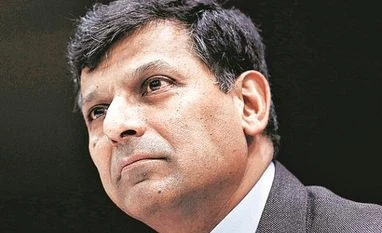The Prime Minister's Office (PMO) has termed as a "roving enquiry" an RTI plea seeking to know details of bad loans submitted by the then RBI Governor Raghuram Rajan to it and which finds mention in his response to Parliament's Committee on Estimates.
The PMO has said the query does not come under the definition of "information" in the RTI Act.
"The information sought is in the form of roving enquiry and does not come under the definition of 'information' as per Section 2(f) of the RTI Act, 2005," Under Secretary and CPIO at the PMO, Praveen Kumar said.
Section 2(f) defines 'information' as any material in any form, including records, documents, memos, e-mails, opinions, advices, press releases, circulars, orders, logbooks, contracts, reports, papers, samples, models, data material held in any electronic form and information relating to any private body which can be accessed by a public authority.
The applicant had mentioned that he was seeking from the PMO information related to communication received from Rajan when he was RBI Governor on bank loans which is mentioned in his response to the Committee on Estimates during a hearing.
He had sought to know the list of bad loans submitted by Rajan, action taken on them by the PMO and the name of the public authority to which the matter was referred to among others.
More From This Section
The PMO also declined to provide information as to when it received the communication from Rajan and on the note sheet of action taken.
In the note to Chairman of Estimates Committee Murli Manohar Joshi, Rajan said the size of frauds in the public sector banking system has been increasing, though still small relative to the overall volume of non-performing assets(NPAs).
"The RBI set up a fraud monitoring cell when I was Governor to coordinate the early reporting of fraud cases to the investigative agencies. I also sent a list of high profile cases to the PMO urging that we coordinate action to bring at least one or two to book. I am not aware of progress on this front. This is a matter that should be addressed with urgency," he said.
Rajan, who was RBI governor for three years till September 2016, is currently teaching at the Chicago Booth School of Business.
Noting that the system has been singularly ineffective in bringing even a single high profile fraudster to book, he said frauds are different from the normal NPAs.
"The investigative agencies blame the banks for labelling frauds much after the fraud has actually taken place, the bankers are slow because they know that once they call a transaction a fraud, they will be subject to harassment by the investigative agencies, without substantial progress in catching the crooks," he said.
)